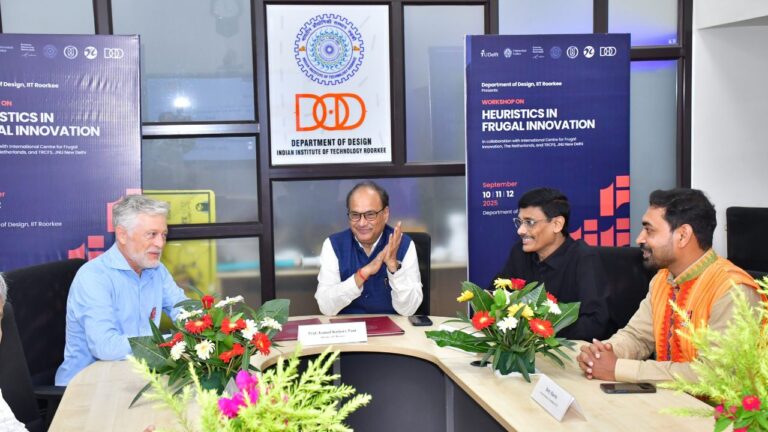
Parents' Day: Embracing Parenthood Amidst Indian Challenges
Every year, on the fourth Sunday of July, families across the world come together to celebrate Parents Day. This special occasion honours the tireless efforts and sacrifices of parents in nurturing and raising their children. Parents play a pivotal role in shaping the future of their offspring, and this day serves as a reminder of the love, care, and guidance they provide throughout their children’s lives.
Table of Contents
Significance of Parents Day
Parents Day is not just a time for children to express their gratitude towards their parents but also an opportunity for parents to reflect on their journey as caregivers. It acknowledges the challenges they face, the joys they experience, and the profound impact they have on their children’s lives. This day also recognizes the diverse nature of parenthood, including single parents, stepparents, adoptive parents, and all others who assume the responsibility of raising and nurturing children.
Each child raised with love, care, and proper guidance has the potential to grow into an individual who can make a positive difference in the world. Parents, by instilling values, imparting knowledge, and providing emotional support, have the power to shape the character and future of their children, who, in turn, can contribute positively to the world around them.
Indian Parenthood Challenges
Indian parenthood is unique and comes with its own set of challenges due to the country’s cultural, social, and economic diversity. While the role of parents is highly valued and respected in Indian society, the following challenges pose significant hurdles to effective parenting:
- Academic Pressure: India is known for its competitive education system, which often places immense academic pressure on children. Parents may feel compelled to push their children to excel academically, leading to stress and anxiety in both parents and children.
- Traditional Gender Roles: Despite progress towards gender equality, traditional gender roles still prevail in many Indian households. Mothers are often expected to take on the majority of child-rearing responsibilities, which can lead to an imbalance in parenting duties.
- Technology and Screen Time: The advent of technology has introduced new challenges for parents, as children spend more time on screens and digital devices. Balancing the benefits of technology with its potential negative impacts on children’s development is a constant struggle.
- Inter-Generational Gap: With rapidly changing social norms, there can be a significant generation gap between parents and their children. This gap may lead to misunderstandings and communication barriers, making it challenging for parents to connect with their children effectively.
- Financial Pressures: Many Indian parents face financial hardships, making it difficult to provide the best opportunities for their children. Financial stress can impact the overall well-being of the family and add pressure on parents to provide for their children’s needs.
Solutions to Overcome Parenthood Challenges
Addressing the challenges of Indian parenthood requires a combination of societal support, policy changes, and individual efforts. Here are some potential solutions:
- Promoting Holistic Education: Encourage an education system that values holistic development, focusing not only on academic achievements but also on physical, emotional, and creative growth.
- Fostering Equal Parenting: Encourage equal sharing of parenting responsibilities between mothers and fathers. This can be achieved through open communication, breaking stereotypes, and providing parental leave policies that support both parents.
- Digital Literacy and Supervision: Promote digital literacy among parents and children alike to ensure responsible and safe use of technology. Establish guidelines for screen time and encourage more outdoor activities and family interactions.
- Parenting Workshops and Support Groups: Organize parenting workshops and support groups to help parents navigate the challenges of parenthood. These platforms can provide valuable insights, knowledge, and emotional support.
- Financial Education and Assistance: Improve financial literacy among parents, enabling them to make better financial decisions and plan for their children’s future. Additionally, government initiatives and NGOs can provide financial assistance to families in need.
- Effective Communication: Encourage open and honest communication between parents and children. Create an environment where children feel comfortable sharing their thoughts and concerns, and parents can guide them without judgment.
- Mental Health Awareness: Raise awareness about mental health issues and the importance of seeking professional help when needed. Support systems should be in place to assist parents and children facing emotional challenges.
Conclusion
Parents Day is a time to celebrate the unconditional love and dedication of parents worldwide. In India, while parenthood comes with its share of challenges, there are also numerous opportunities for growth and positive change. By fostering a supportive and understanding environment, promoting equal parenting, and addressing the unique challenges of Indian parenthood, we can create a brighter future for both parents and children alike. Let us cherish and honour the role of parents in shaping the world, one child at a time.




